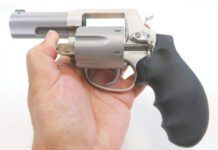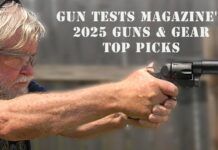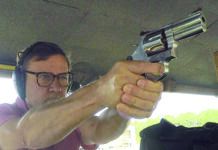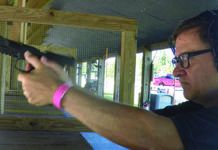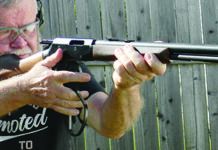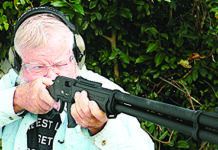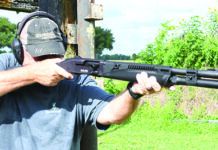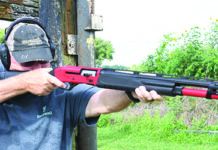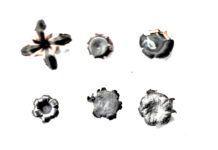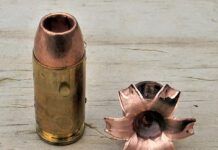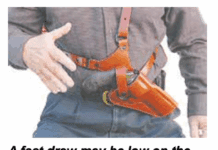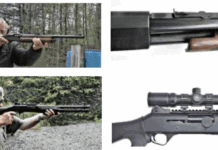(GunReports.com) — Laser sights on pistols are not a novelty anymore. They can be useful to aim a pistol that might not or cannot be aimed using open sights, like shooting from the ground, through small openings, or most any other situation where the iron sights cannot be aligned between the shooter or the target.
Scan the used-handgun case at a gun shop, and more than likely you’ll find a rig that the former owner customized with a laser sight. In the new-pistol case, you will also see factory-fitted laser sights on handguns. Gun Tests magazine’s shooters were interested in how factory-fitted lasersights would affect their judgment of three previously tested 380 ACP pistols, the Ruger LCP, SIG’s P238, and Walther’s PK380. The Ruger earned an A- grade in the June 2008, and the SIG notched an A- in the June 2010 issue, and the Walther got a B-, also in the June 2010 issue.
The lasered versions of those handguns are the Ruger LCP-LM No. 3718 380 ACP, $443; SIG Sauer’s P238 Tactical Laser No. 238-380-TL 380 ACP, $829; and Walther’s PK380 With Laser No. WAP40010 380 ACP, $489. Would the addition of a laser sight change the testers’ minds about the pistol? Would the addition of a laser bulk up a pocket pistol with a gadget? Would the laser be an asset or a detriment to an already fine pistol? The three pistols spanned the spectrum of action types.
The Ruger is a DAO (Double Action Only). The Walther PK380 is a traditional DA/SA (Double Action/Single Action) pistol, where the pistol can be fired DA and subsequently fired SA. The SIG, SA only, was set up like a mini 1911. These pistols are made for close work, so we tested for accuracy at 15 yards with open sights, but were more interested in using the lasers in unconventional shooting positions, much like you might encounter in a real-life confrontation with a bad actor. Our goal with these lasered pocket pistols was to quickly project the red dot on target and punch holes in targets efficiently and effectively. We used D-1 tombstone-style targets with a 4-inch-diameter X-ring and an A-ring and B-ring at 8 inches and 12 inches, respectively. The rings are visible at close range — about 5 yards, but beyond that and depending on your eye sight, the rings are undetectable.
All three employed red Class IIIa lasers. The warning label was blatantly affixed to each laser. Don’t point the laser beam in eyes, as permanent eye damage can result. (Never mind the damage from a 380 slug.) Laser beams can reflect off certain surfaces like TV screens, mirrors, glass, etc. Make sure you test the laser of an unloaded weapon so you can experience how the laser beam can react. Also note that laser sights should also be removed when cleaning the weapon, as oils and solvents are not good for the laser’s electronics. As in any test, we focused on the major areas of importance with these pistols, such as reliability, concealability, shooter comfort, and accuracy. But because of the lasers, we zeroed in on how the optics affected handling, printing, and other carry issues.
To read the rest of piece, subscribers click here



